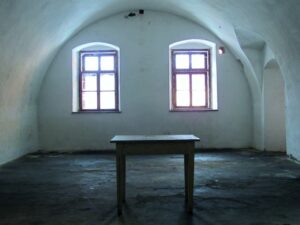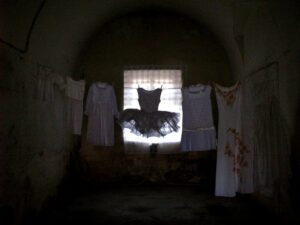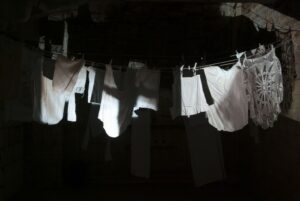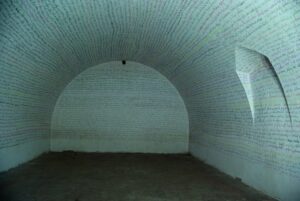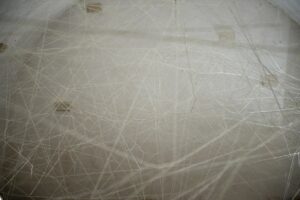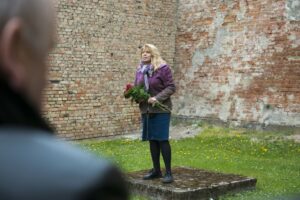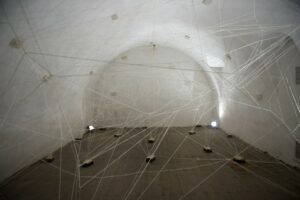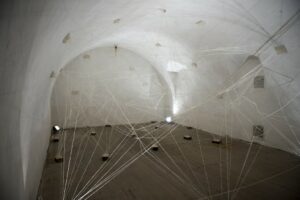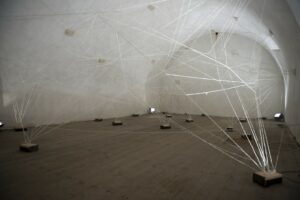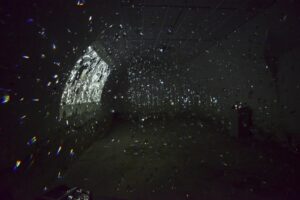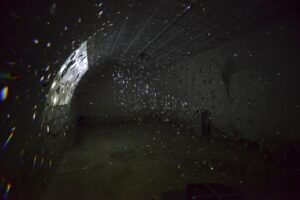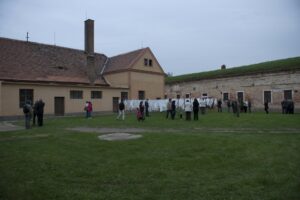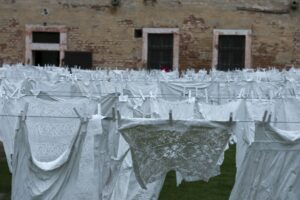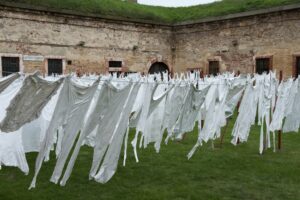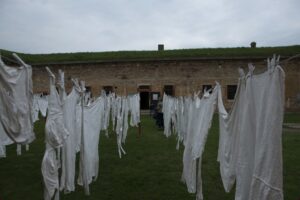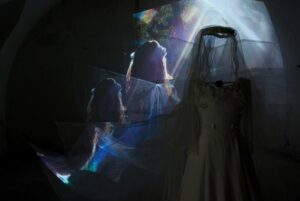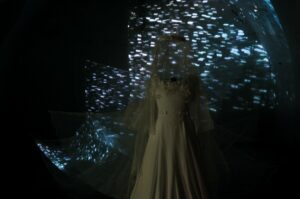works / Women’s Yard, first part – site specific
Small Fortress Terezín Memorial
In her current double exhibition, installed in Terezín’s Small Fortress (1 May – 26 August 2013) and DOX (7 June – 26 August 2013), Kamila Ženatá, the „advocate of dreams and emotions“, works with crude-sounding concepts such as transgenerational transmission of trauma, displacement of pain or the rule of totalitarianism in relation to the female world. The artist, who has made a name for herself on the Czech art scene with her complex work with exhibition space and her emphasis on non-transferable personal experience, does not hesitate to go to the core in materializing them.
The theme of the installation is women and femininity and their inexorable connection to the social, societal and familial conditions that shape people in the long term. In addition to her artistic activity, Kamila Ženatá has been conducting group psychotherapy and art therapy courses for a long time, and thanks to this experience she questions our ability to step out of the chains of our own past:
In the space of the Small Fortress of the Terezín Memorial and the DOX Centre for Contemporary Art, it relies on a complex emotional immersion of the visitor. However, it does not guarantee likability. The detached monochrome of a space full of pots, washed laundry and other objects we associate with an idealised childhood and a domestic, secure perception of the world creates a strongly oppressive impression. The artist also uses other typical means; an all-pervasive audiovisual background, contemporary documents and interpenetration with the exhibition space, for example in the form of textual interventions in the walls.
Kamila Ženatá draws on gender experience, but in the project Ženský dvůr (Women’s Yard) she generalizes the theme and follows the line of not only one particular story, but also many others. After all, trauma, broken ties and repression, which disintegrate our relationships, belong to life in general. And generational syndromes are passed on and on from parents to children, accompanied by the emergence of relational defence mechanisms that the author figuratively calls “hearts of stone”.
„The consideration of whether it is even possible to go down the path you are destined to follow, even if that destination is not obvious and clear, yet somehow it is inevitable because your ancestors have passed on to you their unconscious ways, their lives and their destinies as threads by which you are bound, perhaps that is called transgenerational transmission. Prisoners in their own heads, is that still true? Trapped in the cells of their destiny?“
(Kamila Ženatá)
